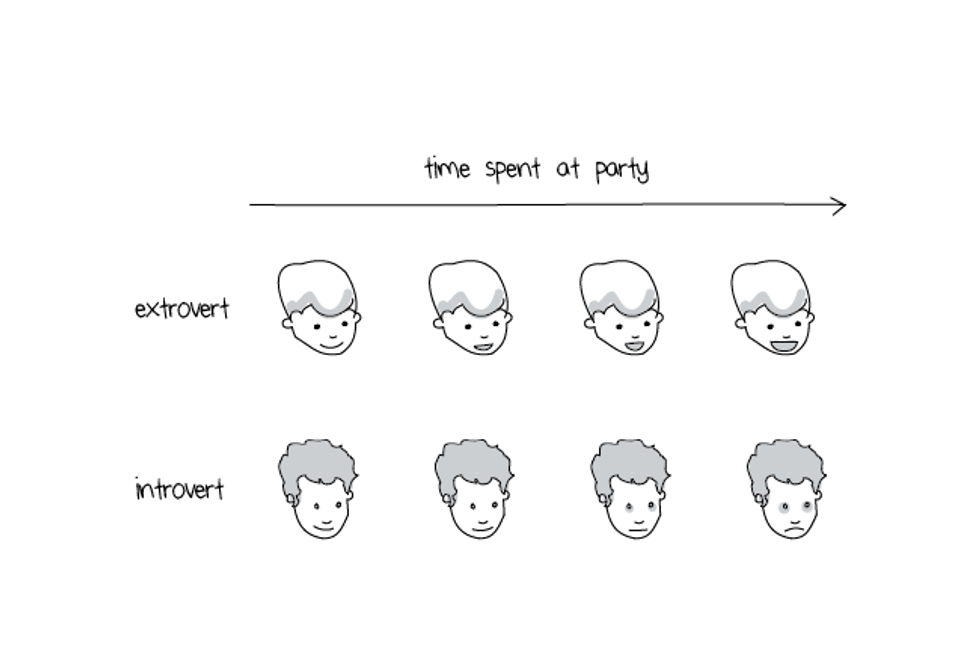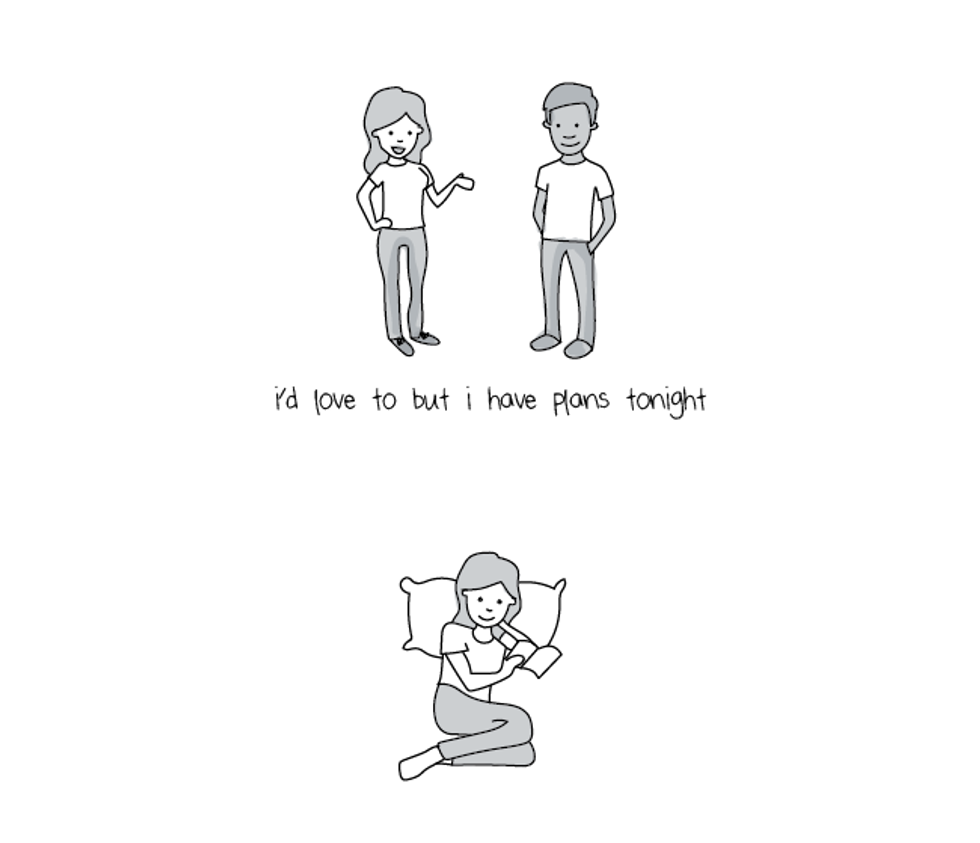I’ll start by saying that I’m super proud of myself for how much reading I’ve done this summer: I’ve already gotten through four books! That’s a heck of a lot better than last summer when, tragically, I didn't read any books. The most interesting read so far has been a book by Susan Cain called “Quiet: The Power of Introverts in a World that Can’t Stop Talking.” When I first started it, I jokingly said that I was reading it so that I could feel better about myself (as I have a fair amount of introverted tendencies), but after finishing it I discovered that it very literally had made me feel more secure with that facet of my identity. Here are some of my favorite pieces of advice from “Quiet”: I think my introverted readers will appreciate these, too.
1. Being quiet is just as important and influential as being loud. In school, business, and everyday life we are encouraged to be go-getters, to make our opinions known, and to be aggressive, since doing this is what will supposedly get you ahead. But, when being gregarious doesn’t come naturally to you, it can sometimes feel like you’re an outsider or even that you aren’t being true to yourself. That’s why it’s important to remember all of the wonderful innovators who found success by being themselves; by being quiet. Steve Wozniak of Apple is the perfect example: if he hadn’t been able to remove himself from the hustle and bustle of the outside world to focus on his true interest, we most likely wouldn’t have our beloved Macs and iPhones today. There is also Professor Brian Little, a former Harvard University psychology lecturer who won the esteemed 3M Teaching Fellowship, which is essentially the Nobel Prize of university teaching. He may not have succeeded as much as he did in the field of teaching had he not been able to periodically escape the constant throng of social activities he was often obligated to go to. Unable to recharge his battery, he may have cracked under the constant social pressure. As a society we need to start appreciating our more introverted friends and family—one third to one half of humans possess quiet personalities. To devalue them because they aren’t as socially outgoing would be to devalue half of all people, which doesn’t make a great deal of sense from any perspective.
Recommended for you
2. Introverts and extroverts sometimes experience a communication gap, but that’s okay. As an introvert living with an extrovert, I’ve had my share of experiences with this fact. I can be pretty stubborn at times when it comes to having large social events at the apartment because, to me, the apartment is the place I go to be completely comfortable and removed from being social for the day. How am I supposed to relax and decompress when there’s five people talking loudly downstairs and dirtying up my living space? After reading this book, however, I’m starting to be able to consider the extrovert’s discomfort as well as my own, and to find a balance that suits my need to be away from people and his need to socialize with the people he cares about. Of course, struggle isn’t the only thing that comes from two opposite personalities intermingling. Introverts, who often prefer deeper levels of conversation, can provide a safe space for extroverts to finally talk about what’s been eating at them for a while, and make them feel that they’re being heard. Extroverts, on the other hand, can give introverts a more lighthearted path of conversation, and even suggest fun activities to go out and do together. Like everything else, there’s good and there’s bad. And that’s fine.
3. For parents or people who want to be parents: if your child is quiet, don’t freak out. Many parents become concerned when they see their child wandering alone on the playground or retreating to their room after school. In many cases, though, the child is just doing what is enjoyable for them. I personally remember, as a kid, being excited to get home from school so that I could rush up to my room and write stories or draw or read. It was a reward for getting through the day, and it gave me time to develop the skill that I’ll soon have a degree in: Creative Writing. If your child wants to escape into imagination land rather than pack their days full of playdates or sports practice, let them. The joys of their hobbies will later blossom into incredible skill and passion that will be much sought after. It’s how innovation and originality come into the world. Be proud of that, and encourage them always.
In short, I think everyone and anyone should pick up a copy of “Quiet” the next time you’re at the bookstore. There’s a lot to be learned in its 270 pages, and I think you’ll understand yourself and others better once you’ve reached the end.




















